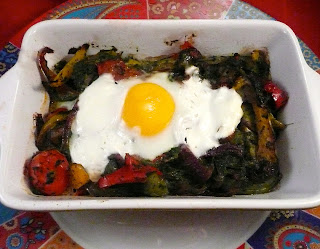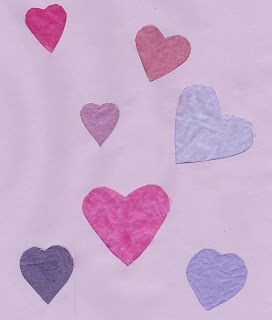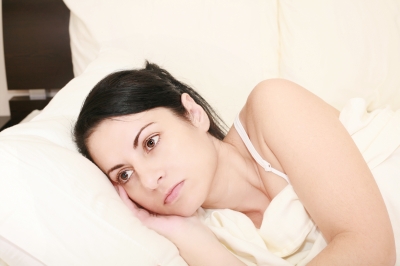A Better Night's Sleep
Before I tell you how last night went I'll explain a little more about Paul McKenna's advice. His book I Can Make You Sleep covers pretty much all angles, including what to eat and how much exercise to do.
A Healthy Diet for Sleep
McKenna is pretty relaxed about diet, and says that although it's important to get enough tryptophan if you eat a healthy diet you more than likely are getting enough. My diet is healthy so I am probably getting enough. He also says not to eat within 3 hours of going to bed. This advice is fairly standard in articles about sleep and I generally don't eat in the evenings anyway, so I can tick that box too. If anything, I have occasionally eaten too early and felt hungry in the night. Occasionally I have a banana or a bowl of yogurt towards bedtime if I feel hungry. McKenna does say you should eat enough that your body has enough energy to get through to morning, but, since I am following all his rules, from now one these snacks will be three hours before bedtime.
Caffeine and Sleep
McKenna is stricter on caffeine that he is on what you eat. No caffeine after 2 pm. Given that I last drank caffeinated coffee in 1989, and ordinary tea about 1998 this is not something that concerns me much. Even a small amount of caffeine leaves me feeling sick and headachy, so my intake is restricted to the occasional jasmine green tea or piece of chocolate. I was in the habit of having one cup of green tea each morning, but I've stopped lately that because if I'm tired caffeine affects me even worse! I do occasionally eat chocolate and chocolate brownies, and did wonder if I need to cut that out. I'm pleased to say that the answers seems to be no. According to Hershey's website, the amount of caffeine in one of their bars the same as in 3 cups of decaf coffee! I never eat Hershey's chocolate, so but even an ounce of dark chocolate only contains between 5 to 35 mg of caffeine and I never eat an ounce at a time. And chocolate also contains tryptophan, which of course helps you sleep. So, I can probably still have the occasional brownie or square of chocolate, but I will have them before 2pm from now on.
Alcohol and Sleep
Although some people use alcohol to help them sleep, the effects are short term and can mean you wake too early. Besides it gives a poor quality of sleep, so McKenna advises to avoid alcohol while you are establishing a better sleep pattern. Since I don't drink anyway, this will easy for me to do!
Exercise Regularly to Help Sleep
McKenna is equally relaxed about exercise, and although he recognises it as an important factor in promoting good sleep, he points out that even people who think they do no exercise are already doing some. I'm exercising my fingers just by typing this post. Getting out of bed in the morning (or in the night) is exercise. So his approach is gentle and encouraging, rather than the bossy tone I've seen in some articles!
He suggests that you make small changes to increase your exercise level in a way that is sustainable rather than join a gym and exercise like mad for a few days, only to give up because it's too hard. The exercise he suggests doesn't even cost anything - it's walking! You don't even need to walk for miles each day, he suggests simple things that are easy to incorporate into the day such as get off the bus a few stops early or park your car a few blocks from where you are going.
I noticed years ago that if I didn't get a reasonable amount of exercise it affected my sleep, so most days I already do exercise of the sort McKenna suggests. But, now I think about it, there have been days lately when it's been raining and cold and where I live the winter days are short so I haven't always felt like going out. Perhaps this could be a more important factor than I realised. Although McKenna doesn't mention it, I'm also aware that daylight is important for our overall well-being and even though I work in a vary bright room, it wouldn't do any harm to get outside each day. So here's a pledge to myself: from now on, I will get a twenty minute walk in daylight every day.
And here's today's report:
Day/Night Two of Paul McKenna's Sleep Program
Visualisations for Sleep
Just as on the first day, I didn't need to wait till I felt sleepy, since I's felt sleepy most of the day. But napping isn't allowed, so I stayed up till close to my usual bedtime. Shortly after ten I did something I haven't done before and gave up waiting for one of my daughters to stop finding things she "just had to do," and go to bed. Instead I said goodnight to her, and went off to bed to read some more of McKenna's book. I tried the "Reducing Your Worries" visualisation that I'd tried the day before, although this time on a different subject. I didn't find it any easier, so looks like I'll be practising that one for a while. Then I did an exercise where you practise being drowsy - that sounds like it would be easy, but it includes imagining a group of friends yawning and was more challenging than I expected.
After that I settled down with my iPod to listen to the hypnosis CD. Before I got far into it my daughter came in to say goodnight to me. After she'd gone I pressed the rewind button, but still didn't manage to get all the way through the CD, because this time my husband came in and I thought it might be rude to ignore him. Finally, at the third attempt, I heard the CD all the way through. (At least I think I did, or I may have fallen asleep, I can't remember!)
When I woke it was dark, but then it's always dark when I wake that this time of year so that gave me no clue to the time. It felt as if it was the middle of the night, but it turned out to be 5.54. (Yes I did sneak a look at the clock, but I'm fairly certain it's constant clock watching when you can't sleep that's banned, not a quick check to see what time it is.)
I felt a little victorious. I would have felt even more victorious if it had been 6.54, but it was certainly a huge improvement. A few minutes later a church clock struck six, and I thought perhaps I should listen to the CD again before my twenty minutes was up. But then I think I dozed off again, waking around quarter to seven with noises from outside.
Although I have read many times that you should get up at the same time each day - and from many other sources besides McKenna - I had felt so tired lately that I'd got into the habit of sleeping late on Sundays, and I didn't instantly leap out of bed the moment 6.50 arrived. But by seven I was up, and feeling fine. It was nice to get up early while everyone else was still asleep. I took some photos of the moon, which weren't hugely successful. (Too much camera shake: I need a tripod.) I watched the sunrise, I stroked the cats and wrote this post.
So at the moment, it's so far, so good. But, I'll be sticking with the program for the full two months, not just two nights.
A Healthy Diet for Sleep
 |
| Eggs contain tryptophan |
Caffeine and Sleep
McKenna is stricter on caffeine that he is on what you eat. No caffeine after 2 pm. Given that I last drank caffeinated coffee in 1989, and ordinary tea about 1998 this is not something that concerns me much. Even a small amount of caffeine leaves me feeling sick and headachy, so my intake is restricted to the occasional jasmine green tea or piece of chocolate. I was in the habit of having one cup of green tea each morning, but I've stopped lately that because if I'm tired caffeine affects me even worse! I do occasionally eat chocolate and chocolate brownies, and did wonder if I need to cut that out. I'm pleased to say that the answers seems to be no. According to Hershey's website, the amount of caffeine in one of their bars the same as in 3 cups of decaf coffee! I never eat Hershey's chocolate, so but even an ounce of dark chocolate only contains between 5 to 35 mg of caffeine and I never eat an ounce at a time. And chocolate also contains tryptophan, which of course helps you sleep. So, I can probably still have the occasional brownie or square of chocolate, but I will have them before 2pm from now on.
Alcohol and Sleep
Although some people use alcohol to help them sleep, the effects are short term and can mean you wake too early. Besides it gives a poor quality of sleep, so McKenna advises to avoid alcohol while you are establishing a better sleep pattern. Since I don't drink anyway, this will easy for me to do!
Exercise Regularly to Help Sleep
McKenna is equally relaxed about exercise, and although he recognises it as an important factor in promoting good sleep, he points out that even people who think they do no exercise are already doing some. I'm exercising my fingers just by typing this post. Getting out of bed in the morning (or in the night) is exercise. So his approach is gentle and encouraging, rather than the bossy tone I've seen in some articles!
He suggests that you make small changes to increase your exercise level in a way that is sustainable rather than join a gym and exercise like mad for a few days, only to give up because it's too hard. The exercise he suggests doesn't even cost anything - it's walking! You don't even need to walk for miles each day, he suggests simple things that are easy to incorporate into the day such as get off the bus a few stops early or park your car a few blocks from where you are going.
I noticed years ago that if I didn't get a reasonable amount of exercise it affected my sleep, so most days I already do exercise of the sort McKenna suggests. But, now I think about it, there have been days lately when it's been raining and cold and where I live the winter days are short so I haven't always felt like going out. Perhaps this could be a more important factor than I realised. Although McKenna doesn't mention it, I'm also aware that daylight is important for our overall well-being and even though I work in a vary bright room, it wouldn't do any harm to get outside each day. So here's a pledge to myself: from now on, I will get a twenty minute walk in daylight every day.
 |
| Getting up early means I saw the sun rise |
And here's today's report:
Day/Night Two of Paul McKenna's Sleep Program
Visualisations for Sleep
Just as on the first day, I didn't need to wait till I felt sleepy, since I's felt sleepy most of the day. But napping isn't allowed, so I stayed up till close to my usual bedtime. Shortly after ten I did something I haven't done before and gave up waiting for one of my daughters to stop finding things she "just had to do," and go to bed. Instead I said goodnight to her, and went off to bed to read some more of McKenna's book. I tried the "Reducing Your Worries" visualisation that I'd tried the day before, although this time on a different subject. I didn't find it any easier, so looks like I'll be practising that one for a while. Then I did an exercise where you practise being drowsy - that sounds like it would be easy, but it includes imagining a group of friends yawning and was more challenging than I expected.
After that I settled down with my iPod to listen to the hypnosis CD. Before I got far into it my daughter came in to say goodnight to me. After she'd gone I pressed the rewind button, but still didn't manage to get all the way through the CD, because this time my husband came in and I thought it might be rude to ignore him. Finally, at the third attempt, I heard the CD all the way through. (At least I think I did, or I may have fallen asleep, I can't remember!)
When I woke it was dark, but then it's always dark when I wake that this time of year so that gave me no clue to the time. It felt as if it was the middle of the night, but it turned out to be 5.54. (Yes I did sneak a look at the clock, but I'm fairly certain it's constant clock watching when you can't sleep that's banned, not a quick check to see what time it is.)
I felt a little victorious. I would have felt even more victorious if it had been 6.54, but it was certainly a huge improvement. A few minutes later a church clock struck six, and I thought perhaps I should listen to the CD again before my twenty minutes was up. But then I think I dozed off again, waking around quarter to seven with noises from outside.
 |
| My best shot of the moon. |
So at the moment, it's so far, so good. But, I'll be sticking with the program for the full two months, not just two nights.


Comments
Post a Comment